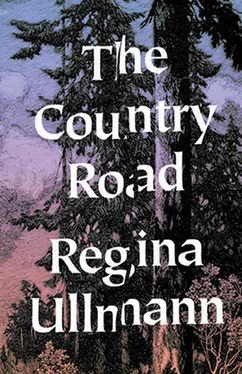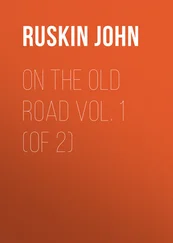And during the day the sun has power over him, like a moon. He closes his eyes before the sun and feels his way like a blind man through its enchanted world. And thinks only of the evil that the sun has already wrought upon it.
And then, as if these sleepless nights had been prepared decades in advance, he remembers the stories that men once told him of those animals, the mice. Of fields undulating with living waves of field mice. Always leaping from one earthen hole to another, to gnaw at the roots of the crops. That field and all the fields for miles around were laid waste. They no longer belonged to the farmers, or to the plants: they belonged to the mice. And the stories told of this devastation were so terrible that they cannot be told again. And the women all stayed home, they were not allowed into the fields, nor did they want to go. And I thought: when I shall die, how horrible. . will the mice gnaw me to pieces, too? And I saw a skull with mice springing out.
Then, as if this human head were nothing but a hollow gourd with a light inside that slowly burns out, an hour arrived at last when I was of no use to the moonlit night, or to the mice: when I could finally sleep. I slept without dreaming. A fleeting sleep, like weather-bleached, straw-yellow grass, a vacuous sleep. I awoke in near-amazement. I remembered only a quavering sound, a trembling that seemed to emanate in miniature from a single point near my bed: but I experienced it in its true enormity, a creature was seeking to escape from its prison! Sometimes it hung with all four legs on the wires of the closed-up trap, as if it felt freer in the air, sometimes its rodent teeth rested impotently on the iron bars. It was indigestible, this prison. It seemed light and airy like no other, but it was nonetheless the prison of all prisons. Even a mouse could feel that, and a man, who can become that mouse’s partner in suffering without even knowing how or when (and not for the sake of a morsel of fatty bacon), such a man knows full well what that creature suffers. And so I, too, was at once a part of all this. I grasped it with my eyes, which only seconds before had been asleep. And I trembled inside as well. But reflecting on my agonizing, sleepless night, I smiled with pleasure at the creature’s pain. Now its time had come. It had banged away at my night until finally its day had come, at my hand. To be sure, I didn’t intend to kill it, although my own rest could only be assured by its death. But I wanted to make the most of its terror, so that perhaps in the future it would give this house a wide berth. After all, there were so many acorns, roots, and berries in the forest. It could enjoy them with the added relish of freedom. Many a root, warmer than a house, could shelter it in the winter. In my thoughts I praised the little animal, I liked it now that it no longer hoped to share my house. I even hurried, for the mouse’s sake. I put on my clothes, if only to wash away the husk that this night, the night I had just endured, had sought to affix to me, always and forever, like a hollow mask. And now and then I glanced with concern at the little creature. It had grown still. Its gray, soft fur was bristling. It seemed to be holding something, as all sleeping animals do: itself. That reassured me. I turned to my household tasks. “You need fear no more than you deserve,” I thought. “I only want to fix my breakfast before I go into the woods.” (Imagine, I could think about food even when a living thing had fallen asleep in my house in mortal fear. My first act upon waking was not to set it free. I wanted to have my meal first.) There was no excuse for that: not the fact that it was only a mouse, a mouse that destructively eats away at our stored-up provisions, that bites our clothing to bits when we put it away for the season; not even the fact that it was just a little thing, in contrast to the great big life that I had not yet begun to live out. Nothing made my pangs of conscience seem excessive, exaggerated. It was not just a mouse, it was not just the mouse, it was a creature, a living thing. On the other hand: it was not just some love preached from afar, some game or confusion of large and small: it was my life.
I remembered a cat that had caught the scent of a mouse I had once freed. It was morning then, too. I had stood as if rooted in place, looking down at them. Pearl gray just like this mouse, it had stood on its hind legs and pleaded, in such fear that its eyes no longer seemed to see, they seemed instead like pearls set into an unreal being. It pleaded for its life. It squealed. It gesticulated with its paws. But it did not leave that spot. Its eyes were like little torturous pins, open and darkly glistening. The cat saw that and heard it too, looking past the mouse in apparent boredom, one paw raised in the air. The little creature could not escape, so the cat simply forgot it. Forgot it just as I did now. Much later I saw that mouse again, the mouse that had ventured into my trap on that visit. It had turned to dust. The starved skeleton was a terrible sight, the hind legs stretched far back, the front paws stabbing up into the air. And other things came to mind, too, for we are bound to all the suffering that occurs on our account. It is engraved into our lives. It clings to us like guilt. As if in passing, it magnifies our dealings with this vast nature a thousandfold. If we were guiltless, to be sure, it would be a beautiful, holy sight. Like a shower of stars, it would affirm our life.
At that I returned to the cage, slowly, hanging my head. I already knew: the mouse was finished.
The value of our existence is by no means always a function of its weight. On the contrary, because our fate alone is frequently too light, there are stones, as it were, that we take on as counterweights. And the way that people use them. . Some heap these stones upon what is dearest to them on this earth. And others have claimed that they had to swallow them. Ah yes, I know people who look as if they had swallowed stones.
The ashes had been cleared from the oven. And there was even fresh brushwood and a bundle of paper inside. You could see it glowing through the little hole in the freshly polished brass door. But it was not content to calmly burn. It was too cold. The oven had been unheated for too long; the windows and doors had stood open for too long. And now you couldn’t even light a match. All the matches in the whole box, rubbed down to nothing, lay on the freshly scrubbed white floor. The old man sat in front of them. Kneeling had drained away all of his strength. And finally, as he tried to light one last match that he had happily found, the cold smothered it again between its invisible hands.
The old man looked around, he listened. Had the young lady already gone home? A light step, moving from the dish rack to the door, told him that she was still there. So he gathered himself together. One truly feels as if in a bone house when such a stiff old man rises again. “Hey you!” he called out, when he had collected himself. He had forgotten her name, even though this creature had been coming at the same time every day for half a year.
She heard him, too. With a hidden, not to say gloating smile (for young people often laugh out of harmless spite at the futile efforts of their superiors), she stood in the doorway, her hard-working hand resting firmly on the door handle. But while she sheltered herself, she directly exposed the old man to a wicked draft. And although he stood still, it seemed as if he were being blown by the wind. He seemed almost inanimate, the way he stood there pointing at the faded fire. One might feel the same way watching an unmanned sailboat cut an arbitrary path through the water.
The windows, which hadn’t been firmly latched, blew open again in the draft. The upper windows, they now saw, had been open all along.
Читать дальше












